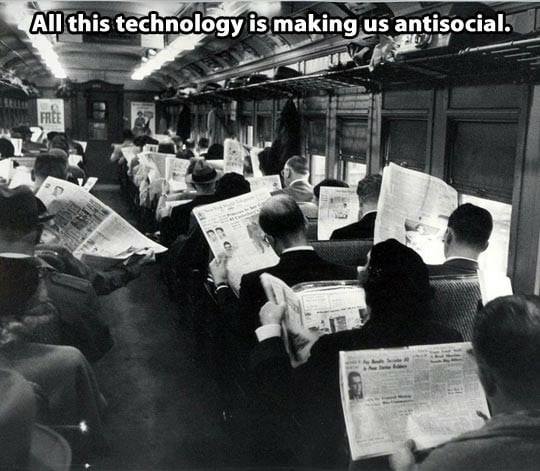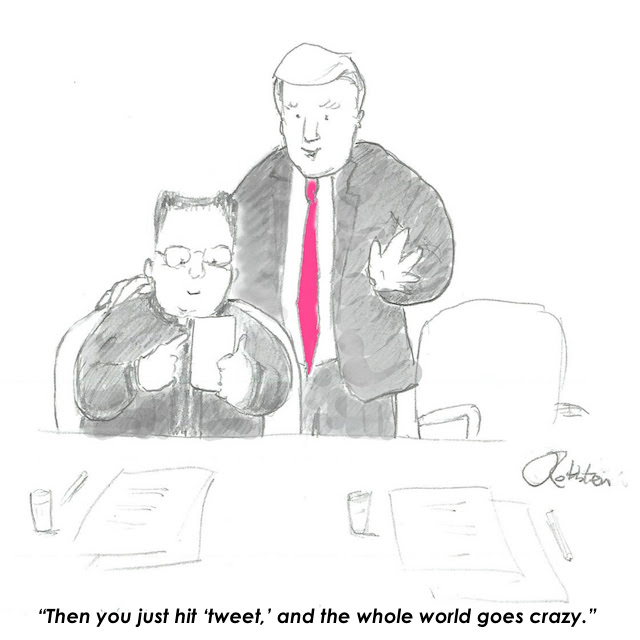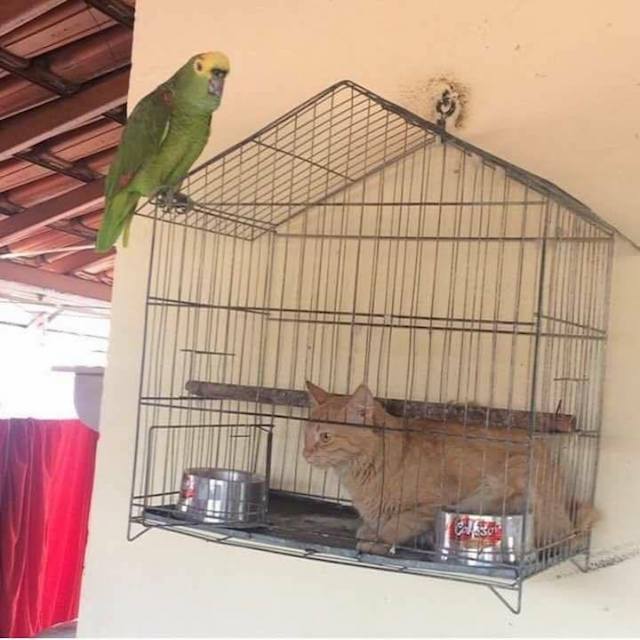
multimedia reprocessed/washed/painted photo produced by my friend Ron Woodall
Carlo Rovelli is a highly-respected theoretical physicist whose work is focused on the concept of quantum gravity. Each book, in which he writes about his latest thinking, is stranger than the last. His latest, The Order of Time, gently but firmly acknowledges that time is just a mental construct, a way for the human brain to make sense of things, and it doesn’t actually exist; it’s “just a story we tell ourselves in order to make sense of our existence”. Neither, he says, does space or anything in space really exist: “The world is made of events, not things”, he explains. How this happens, he acknowledges, is a mystery. “Time is the form in which we beings whose brains are made up essentially of memory and foresight interact with our world: it is the source of our identity”, he writes.
In his review of the book, Ephrat Livni sums it up this way: “Time is a story we’re always telling ourselves in the present tense, individually and together. It’s a collective act of introspection and narrative, record-keeping and expectation, that’s based on our relationship to prior events and the sense that happenings are impending. It is this tale that gives us our sense of self as well, a feeling that many neuroscientists, mystics, and [now physicists like Carlo Rovelli] argue is a mass delusion”.
One of these neuroscientists is Anil Seth. He argues that the perception of our self and our “conscious” reality is a “hallucination”. What we perceive, he says, is the brain’s “best guess”, based on its accumulated modelling of the world, about what the electromagnetic signals coming to it from the senses actually “mean” in reality. What we “experience” as the world is merely our mental model of it. “When we agree on our hallucinations, we call that reality. And the experience of being a self is also a controlled hallucination generated by the brain… We ‘predict’ our selves into existence.”
This is why I’m so taken with radical non-duality, whose preposterous and useless message is looking more and more like the truth about what is real, according to the latest learnings and theories in physics, neuroscience and philosophy. No glimpse needed.
PREPARING FOR CIVILIZATION’S END

photo by Ian Nelson of Hanalei Bay, Kaua’i after the April 2018 floods, which swept away some livestock fences and introduced some species to some novel ecosystems
Evolutionary Dead End: xraymike exhaustively catalogues the last year’s news on climate change and economic overshoot, with dozens of supporting links. It’s a dismal report. I’m glad he’s tracking it all; I can no longer bear to.
A Wilderness Between Us: td0s writes about reclaiming the wildness that is our birthright, and our sanity. And then:
If the wilderness is gone, we fight where we stand. Instead of escaping to an unseen frontier, let us invite the wild in. Let it consume civilization from the inside out.
Life at the End of the World: A review of 3 new works: Richard Powers’ cli-fi novel The Overstory, William Vollman’s blistering critique of the nuclear power industry No Immediate Danger, and Paul Schrader’s film First Reformed. All three, are essentially, about the consequences of our disconnection from the natural world. None is a message of hope or redemption.
Speaking the Unspeakable: Mayer Hillman of the Policy Studies Institute no longer fears to say what most are unwilling or unable to say (thanks to Jae Mather for the link):
We’re doomed. The outcome is death, and it’s the end of most life on the planet because we’re so dependent on the burning of fossil fuels. There are no means of reversing the process which is melting the polar ice caps… I’m not going to write anymore because there’s nothing more that can be said.
LIVING BETTER

image from the Writing on Writing FB site
That Would Be No: Bill Leith writes about how, and why, to learn to say no.
An Untouchable Day Every Week: Neil Pasricha explains why we need one (and not on the weekend), for our productivity and peace of mind, and how to ensure we get one.
Community-Based Power: The remote Scottish island of Eigg is being visited by groups from all over the world studying Eigg’s electrical energy self-sufficiency which comes from a careful mix of wind, solar and micro-hydro power. Thanks to my brother Alan for the link.
Once More, What You Should Eat: Mark Bittman and David Katz review a ton of research on the connection between nutrition and health (and quality of life) and say, as nutritionfacts.org has been saying for years, for most people the best diet is a wide variety of unprocessed, whole plant based foods. One more time:
The basic theme of optimal eating — a diet made up mostly of whole, wholesome plant foods — has been clear to nutrition experts for generations… A diet cannot be optimal if it is not made up mostly of some balanced combination of vegetables, fruits, whole grains, beans, legumes, nuts, seeds, and water.
And What You Should Not Eat: Deep Green Resistance activist Lierre Keith may be on the right (left?) side of the lamentable schism between radical feminists and trans rights activists, but the extreme anti-vegan position she takes in her latest book is enough to alienate even her strongest supporters. Nutritionist Ginny Messina attempts, patiently and thoroughly, to set the record straight on Lierre’s absurd claims:
It’s next to impossible to review this book; it is so packed with misinformation and confusion that refuting the claims could be another book itself… We get page after page of contradictions, fabrications, and misinterpretations. Not surprisingly, given the sources she uses, Keith is woefully confused about fats. She believes that saturated fat is needed for absorption of vitamins and minerals, that polyunsaturated fat is “low-fat,” and that we have a dietary need for cholesterol. In fact, we have no dietary need for either saturated fat or cholesterol—there is no RDA for either. The liver makes all the cholesterol our bodies require. And the two essential fatty acids required by humans—both unsaturated—are found in plant foods.
Two Natural Bug Bite Preventatives: Consumer Reports found only two natural (non-DEET) products effectively prevented mosquito and tick bites: 30% concentration of Oil of Lemon Eucalyptus (but NOT cedar, cinnamon, citronella, clove, geranium, lemongrass, rosemary, or peppermint), and 20% picardin (black pepper plant) spray (but not lotion, even with the same concentration).
Atul Gawande on Science Careers and Conversations About Death: The doctor, frequent New Yorker contributor and author has written a lot of good stuff, but none better than his commencement speech to CIT about the dangerous growth in the misunderstanding and mistrust of science, and his article about how to talk, and think, about our and loved ones’ mortality and end-of-life quality. Thanks to Peter Frinton for the links.
Reversing Alzheimers: A former BC politician and doctor says he has a saliva test that predicts whether you will develop the disease, and that ibuprofen, an OTC anti-inflammatory, will prevent it if you test positive and start taking it early enough.
Bulldoze the Business Schools: A lifelong B-school prof says they’ve lost course and should be scrapped. “If we want those in power to become more responsible, then we must stop teaching students that heroic transformational leaders are the answer to every problem… The sort of world that is being produced by the market managerialism that the business school sells is not a pleasant one. It’s a sort of utopia for the wealthy and powerful, a group that the students are encouraged to imagine themselves joining, but such privilege is bought at a very high cost, resulting in environmental catastrophe, resource wars and forced migration, inequality within and between countries, the encouragement of hyper-consumption as well as persistently anti-democratic practices at work.”
POLITICS AND ECONOMICS AS USUAL

Cartoon by Lisa Rothstein for The New Yorker
Good Reasons to Distrust Canada: While Der Drumpf’s Trudeau-bashing is getting Canadians outraged and Americans apologetic (now there’s a switch!), there are lots of reasons for Canadians to be utterly ashamed of what we are doing to the world. A few recent examples:
- The Trudeau government continues to defend and protect the monstrous offshore fish farms that are contaminating and infecting native fish in our coastal waters
- The BC NDP government, of which the Green Party is a partner, is proceeding with the financially and environmentally ruinous Site C hydro dam despite evidence it is completely unneeded
- The fracking industry in northeastern BC alone has built nearly 100 dams and water diversions without permits, many of them found to be “structurally unsound”
- The Alberta Tar Sands, soon to be larger in area than the state of Florida, now includes 340 billion gallons of toxic effluent sludge ponds (thanks to Mat Hallam-Eames for the link)
- The Trudeau government’s cowardly watering down of right-to-die laws is depriving many sufferers of a humane and peaceful end to their lives, and putting their loved ones at risk of prosecution
- Most (70%) of the 460 people killed by police in Canada since 2000 were suffering from mental illness or substance addiction problems; it is clear that proper health treatment for these people, and/or de-escalation by properly-trained police, could have saved many if not most of these lives
- Canada’s most populous province, Ontario, just elected a right-wing whack job as their premier, who has promised to sue to end carbon taxes and other climate change regulations Canada-wide, and said he will allow members of his caucus to introduce bills to re-criminalize abortion
- Canada’s newest “export” to the world is Jordan Peterson, the Professor of Piffle, adored and massively funded ($750k/year on Patreon alone) by what seems to be a strange mix of ultraconservatives and clearly-troubled young people for his unprovable gibberish (thanks to Paul Heft for the second link)
Meanwhile South of the Border:
- One of the US’ goals in the NAFTA renegotiation is to enrich Big Ag by preventing disclosures about the health dangers of US-produced high-fat/sugar, processed, low-nutrition foods
- Facebook continues to eviscerate the business model that enables healthy journalism to function
- The war against Sci-Hub, the wonderful and desperately-needed service that provides free access to scientific periodicals behind paywalls, is heating up again, with new lawsuits and judgements
- He may not be as dangerous as Jordan Peterson, but Steven Pinker’s crypto-liberal sermons of scientism are just as fatuous and non-sensical (sorry, it seems Steven Pinker is also Canadian-born)
- Turns out Christian fundamentalist Hobby Lobby’s new Museum of the Bible contains mostly artefacts ransacked from Iraq during the US invasion (thanks to Ben Collver for the link)
- And the largest TV station owner in the US forced all its stations, regardless of network affiliation, to spout a pre-written attack on independent and liberal media, word-for-word (thanks to Ben Tannahill for the link)
FUN AND INSPIRATION
 image from the Facebook group Non-existent Existential Memes
image from the Facebook group Non-existent Existential Memes
Jonathan Pie, Feminist: The satirist lampoons the typical male confusion about the significance of the gender pay gap (and the propensity of the media in general to want to make things simpler than they are). His “interviewee” is brilliant.
Richard Bartlett on Belonging, and on American Exceptionalism: The Kiwi Loomio/Enspiral co-founder describes the urges and dangers of belonging, and how the US truly is different from other “developed” nations. (Both long but worthwhile reads.) Thanks to Tree Bressen for the links.
What Can an Old Folk Song Tell Us?: The musical duo Anna and Elizabeth do a bit of cultural anthropology, in two-part harmony.
What Every Country in the World Calls Itself: In it’s own language. Or in table form.
Siyahamba and Shosholoza: A choir from Congo Brazzaville blends two moving South African anthems. Stories of the songs here and here.
Circle Song: Bobby McFerrin & The Kuumba Singers do a circle song, a form of improv singing.
What’s That in the Sky? It’s Just Steve: Canadian hobbyists identify, and name, a new atmospheric phenomenon.
A Brief History of Timekeeping: Zach Holman presents an entertaining and well-researched analysis of why we keep time the way we do. (Leave ‘time’ for this — it’s long but worth it.)
The Wisdom/Madness of Crowds: Nicky Case’s brilliant little interactive explanation of what crowds are good, and bad, at. Thanks to Ben Brangwyn for the link. (This one also needs some time to do justice to it.)
Where Were You on the Night of…?: If you leave Google location set to “on” on your smart phone, Google Timeline knows exactly (to the metre) where you’ve been and how long you were there. It can give you a play-by-play, and even knows by your speed whether you drove, cycled or walked. Google promises they don’t upload this information; it’s for your eyes only. Uh huh. If you’ve forgotten the name of that vegan restaurant in Brighton near the pier you visited last year, it will tell you. If you’ve been doing something immoral or illegal, better not leave your phone lying around. Though it might actually give you an alibi if you need one. Of course, it could have been hacked…
THOUGHTS FOR THE QUARTER

another masterpiece from Bowen Island cartoonist Ron Woodall; the characters portrayed are the Bowen Island Black Sheep, our amazing local Morris Dancers
This edition of “thoughts for the quarter” is entirely quotes from David Foster Wallace, mostly selected from Amazon’s Goodreads service. Yes, I know there’s lots of evidence he was not a very nice person to some who knew him or worked with him. Still, he had a way with words:
“The so-called ‘psychotically depressed’ person who tries to kill herself doesn’t do so out of quote ‘hopelessness’ or any abstract conviction that life’s assets and debits do not square. And surely not because death seems suddenly appealing. The person in whom its invisible agony reaches a certain unendurable level will kill herself the same way a trapped person will eventually jump from the window of a burning high-rise. Make no mistake about people who leap from burning windows. Their terror of falling from a great height is still just as great as it would be for you or me standing speculatively at the same window just checking out the view; i.e. the fear of falling remains a constant. The variable here is the other terror, the fire’s flames: when the flames get close enough, falling to death becomes the slightly less terrible of two terrors. It’s not desiring the fall; it’s terror of the flames. And yet nobody down on the sidewalk, looking up and yelling ‘Don’t!’ and ‘Hang on!’, can understand the jump. Not really. You’d have to have personally been trapped and felt flames to really understand a terror way beyond falling.”
“You will become way less concerned with what other people think of you when you realize how seldom they do.” (from Infinite Jest)
“Everything I’ve ever let go of has claw marks on it.”
“Whatever you get paid attention for is never what you think is most important about yourself.”
“The next suitable person you’re in light conversation with, you stop suddenly in the middle of the conversation and look at the person closely and say, ‘What’s wrong?’ You say it in a concerned way. He’ll say, ‘What do you mean?’ You say, ‘Something’s wrong. I can tell. What is it?’ And he’ll look stunned and say, ‘How did you know?’ He doesn’t realize something’s always wrong, with everybody. Often more than one thing. He doesn’t know everybody’s always going around all the time with something wrong and believing they’re exerting great willpower and control to keep other people, for whom they think nothing’s ever wrong, from seeing it.” (from The Pale King)
“I’d like to be the sort of person who can enjoy things at the time, instead of having to go back in my head and enjoy them.”
“To me, at least in retrospect, the really interesting question is why dullness proves to be such a powerful impediment to attention. Why we recoil from the dull. Maybe it’s because dullness is intrinsically painful; maybe that’s where phrases like ‘deadly dull’ or ‘excruciatingly dull’ come from. But there might be more to it. Maybe dullness is associated with psychic pain because something that’s dull or opaque fails to provide enough stimulation to distract people from some other, deeper type of pain that is always there, if only in an ambient, low-level way, and which most of us spend nearly all our time and energy trying to distract ourselves from feeling, or at least from feeling directly or with our full attention. Admittedly, the whole thing’s pretty confusing, and hard to talk about abstractly…but surely something must lie behind not just Muzak in dull or tedious places any more but now also actual TV in waiting rooms, supermarkets’ checkouts, airport gates, SUVs’ backseats. Walkman, iPods, BlackBerries, cell phones that attach to your head. This terror of silence with nothing diverting to do. I can’t think anyone really believes that today’s so-called ‘information society’ is just about information. Everyone knows it’s about something else, way down.”
“I’d tell you all you want and more, if the sounds I made could be what you hear”




